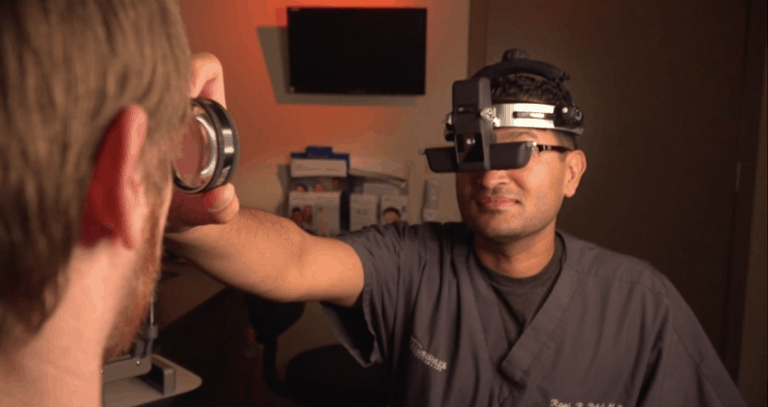The cornea is the outer lens of the eye. A normal cornea is clear and dome-shaped, but when the shape is altered, it can cause distortions and blurriness in the vision. This is called keratoconus. Keratoconus is degenerative, but rarely results in complete blindness although a patient’s vision can be significantly impacted – enough to affect their quality of life.
What is keratoconus?
Keratoconus occurs when the normally dome-shaped cornea begins to thin and bulges outward, forming a cone shape. This is a gradual process and typically both eyes are affected. It changes the way that light enters the eye, distorting it and causing vision to degrade. Symptoms first appear between the ages of 10 and 25.
What are the symptoms of keratoconus?
Symptoms of keratoconus tend to get worse as the condition progresses. They include:
- Blurred vision
- Vision distortions
- Photophobia (sensitivity to light) that may get worse
- Sensitivity to glare or reflected light
- Impaired night vision
- Problems with eyesight that gradually worsens, requiring vision correcting eyewear
- Clouding of vision that occurs suddenly, then gradually gets worse
What causes keratoconus?
The exact causes of keratoconus are not known. Researchers believe that it may have a genetic component since it seems to run in families. Vigorously rubbing your eyes is also believed to be a risk factor. Keratoconus has also been linked to other conditions such as Down syndrome, retinitis pigmentosa, hay fever, Ehlers-Danlos syndrome, and asthma.
What are the complications of keratoconus?
Complete loss of vision rarely occurs with keratoconus, but vision can become seriously impaired. Sometimes the cornea will swell rapidly, causing vision to be suddenly reduced and the cornea scarred. If the condition reaches an advanced state, it can scar the cornea to the point that a corneal transplant is necessary in order to preserve the vision.
What are the treatments for keratoconus?
The progression of this condition is very slow, taking a decade or more to cause significant, life-altering, vision problems. In the early stages, the vision problems caused by the condition can be corrected by glasses or soft contacts. Vision problems that occur in the later stages of keratoconus may be treated with special contacts such as rigid gas permeable contacts. Very advanced stages may require a cornea transplant.
At Florida Eye Specialists, we believe in providing the highest quality patient care in a comfortable, professional setting. We bring together experience, knowledge, and compassion to our practice, ensuring that you will receive the best possible care. Call our office today at 904-564-2020 or schedule an appointment online at any of our six locations around Jacksonville.

